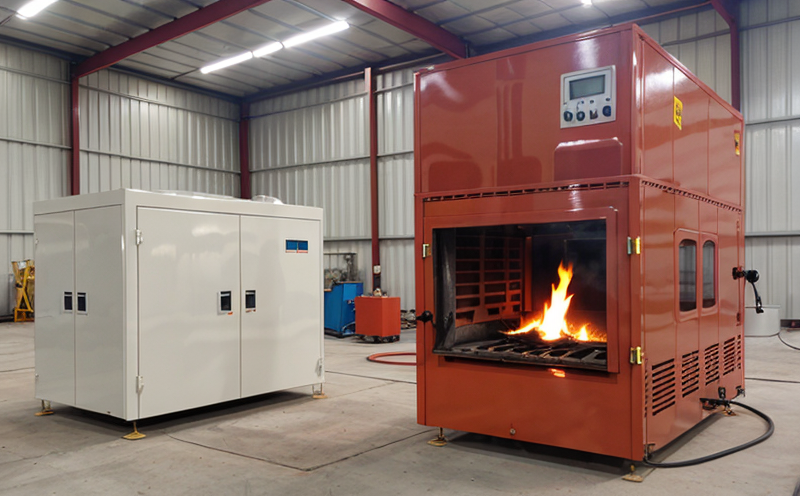ASTM E113 Thermal Diffusivity of Refractory Materials
The ASTM E113 test method is a critical standard used to measure the thermal diffusivity of refractory materials. This parameter is essential in determining how efficiently heat can be transferred through these materials, which are widely used in high-temperature industrial applications such as furnaces, kilns, and incinerators.
The ASTM E113 method uses a transient plane source (TPS) technique to determine thermal diffusivity. The TPS is a small circular disk of the material under test, heated by an electrical resistance heater, and its temperature change over time is monitored using infrared detectors. By analyzing this data, the thermal diffusivity can be calculated based on Fourier's Law.
Refractory materials are known for their ability to withstand extreme temperatures without degrading significantly. However, they also need to efficiently manage heat flow within industrial processes. The ASTM E113 test is crucial because it helps ensure that these materials perform optimally under the high-temperature conditions required by various industries.
Compliance with this standard ensures that materials meet the necessary performance criteria set forth for their intended applications, thereby enhancing safety and efficiency in manufacturing environments. Industries relying on refractory materials include steelmaking, glass production, cement manufacturing, and chemical processing.
The ASTM E113 test method is particularly important because it provides quantitative data about thermal properties that can influence the design and optimization of industrial processes. This information helps manufacturers select appropriate materials for their specific needs while maintaining safety standards.
By adhering to this standard, facilities demonstrate their commitment to quality control and regulatory compliance, which are vital considerations in industries where product performance directly impacts operational success.
Environmental and Sustainability Contributions
- Emissions Reduction: By ensuring that refractory materials perform efficiently under high temperatures, the ASTM E113 test helps minimize excess heat generation during industrial processes. This reduction in unnecessary energy consumption can lead to lower greenhouse gas emissions.
- Resource Efficiency: Proper material selection based on thermal diffusivity data from this test allows for more efficient use of resources, leading to reduced waste and improved overall sustainability practices within manufacturing plants.
The ASTM E113 test contributes significantly to environmental stewardship by promoting the use of materials that are both durable and energy-efficient. This approach supports broader efforts towards reducing carbon footprints across various sectors.
Competitive Advantage and Market Impact
Compliance with ASTM E113 enhances a company's reputation for reliability and innovation, particularly within the metallurgy and material testing sectors. It ensures that products meet stringent industry standards, providing assurance to customers about product quality and performance.
In competitive markets where compliance is increasingly being demanded by regulatory bodies and end-users alike, adherence to this standard can differentiate suppliers who prioritize quality over cost alone. This differentiation translates into increased customer trust and loyalty, ultimately contributing to higher market share and profitability.
Moreover, the ability to demonstrate compliance with internationally recognized standards like ASTM E113 positions companies as leaders in technological advancement within their respective fields. This leadership role can attract top talent and strategic partnerships, further solidifying competitive advantage.
Use Cases and Application Examples
The ASTM E113 thermal diffusivity test is widely utilized across several industries that require robust refractory materials capable of withstanding harsh environmental conditions. Here are some specific applications:
- Steel Industry: Ensuring the integrity of furnace linings and ladles to maintain efficient heat transfer.
- Glass Manufacturing: Improving kiln insulation layers for better temperature control during production cycles.
- Cement Production: Enhancing rotary kilns' efficiency by optimizing fuel usage through precise material selection.
- Chemical Processing: Designing safer and more efficient reactors that can operate at optimal temperatures without compromising safety or yield.
In each case, accurate measurement of thermal diffusivity ensures that materials are chosen based on their ability to handle specific temperature ranges effectively. This precision contributes significantly to process optimization and operational efficiency in these critical industries.





